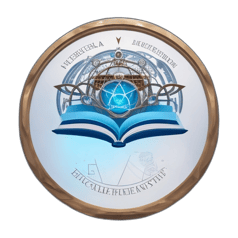Rethinking Education: The Power of Socratic Learning and Self-Directed Education
Socratic Method, how it works and where it has been tested
EDUCATION
@macister83
6/23/20233 min read


Welcome back to the Macister83 Universe, where we explore the captivating intersections of power, economics, psychology, engineering, and leadership. Today, we delve into the realm of education, specifically focusing on alternative methods of teaching that challenge the traditional system.
The inspiration for this discussion comes from a fascinating video featuring Jeff Sandefer, an education innovator who advocates for a different approach to educating our children. Sandefer's method, implemented in Acton Academy schools, is based on Socratic learning and self-directed education.
The Socratic Method in Education
The Socratic method, named after the classical Greek philosopher Socrates, is a form of dialogue-based learning. It encourages critical thinking and illuminates ideas through logical questioning. Instead of feeding students information, it guides them to discover answers on their own, fostering a deeper understanding of the subject matter.
In the Acton Academy model, students engage in Socratic discussions on a daily basis, tackling real-world moral problems relevant to them. This method not only promotes critical thinking but also helps students build the analytic skills necessary to assess a problem properly and strategize solutions.
Self-Directed Education and Learning by Doing
Another cornerstone of the Acton Academy model is self-directed education. Students are encouraged to take charge of their learning journey, fostering a sense of responsibility and independence. This approach is coupled with a strong emphasis on experiential learning or "learning by doing."
At Acton Academy, students run their own businesses. They learn how to create business plans, manage finances, and handle customer service. They participate in "quests," project-based challenges that require them to solve problems and work collaboratively. For instance, one quest involved designing a water purification system. Older students are encouraged to seek out apprenticeships in areas they're passionate about, providing them with valuable work experience and allowing them to explore potential career paths.
Self Authoring: A Tool for Personal Growth
An integral part of the Acton Academy model is the Self Authoring program developed by Jordan Peterson. This program encourages students to write about their past, present, and future in a structured and objective manner. It's divided into eight parts, with the first four focusing on understanding one's past, acknowledging personal faults and virtues in the present, and envisioning an ideal future. The remaining four parts involve revisiting and refining these narratives.
At Acton Academy, students use this program to gain a deeper understanding of themselves, their motivations, and their goals. This process of self-reflection and planning is a powerful tool for personal growth and development.
The Self Authoring program is particularly beneficial for those at the lower end of the socio-economic spectrum. By helping them reorganize their own story, it empowers them to understand their past, take control of their present, and actively shape their future. It provides them with the tools to overcome their circumstances and strive for a better life.
The Impact on Higher Education and Beyond
The implications of this approach extend beyond K-12 education. Many Acton Academy graduates are choosing to bypass traditional college routes, opting instead for industry apprenticeships or entrepreneurial endeavors. They see college as a tool that may or may not be necessary, depending on their individual goals and circumstances.
This shift in perspective is a testament to the effectiveness of alternative education models in preparing students for the real world. It challenges the prevailing notion that a traditional college degree is the only path to success.
Jeff Sandefer: An Entrepreneur Shaping Education
Jeff Sandefer is not just an education innovator but also a seasoned entrepreneur. He started his first company at the age of 16 and went on to found several successful energy companies. His entrepreneurial spirit is reflected in the Acton Academy model, which encourages students to take charge of their learning and fosters an entrepreneurial mindset.
Commentary
As we navigate the 21st century, it's clear that our education system needs to evolve to meet the changing needs of students and society. The Socratic method, self-directed education, and the Self Authoring program offer promising alternatives to traditional teaching methods. They empower students to take charge of their learning, foster critical thinking skills, and prepare them for real-world challenges.
As always, I invite you to join the discussion. What are your thoughts on these alternative education methods? How do you think they could impact our education system and society at large?
References
